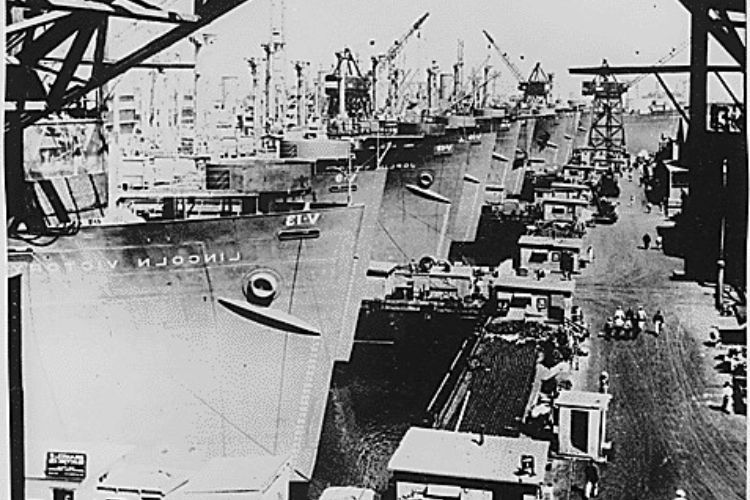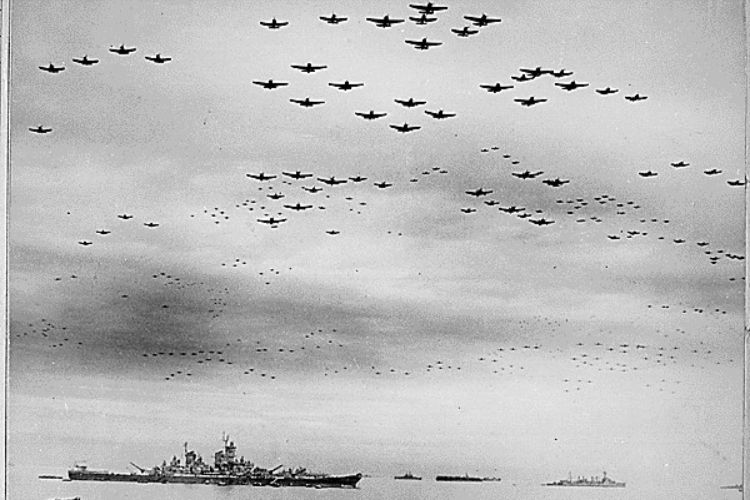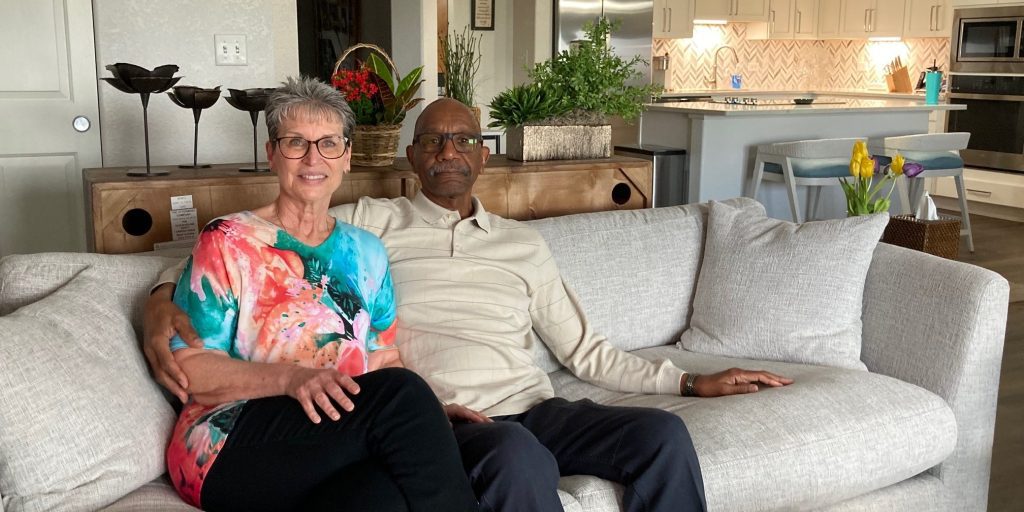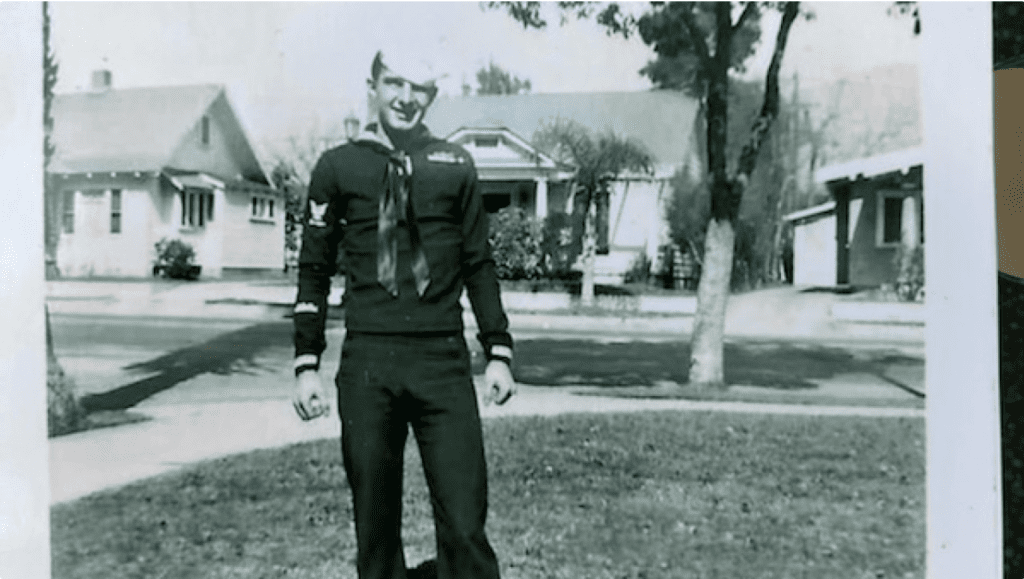As the United States marks the 80th anniversary of the end of World War II (September 2, 2025), Holly Creek Life Plan Community resident Ben Smith has more than history books to reflect on — his life began in the very first wave of what would become America’s Baby Boom generation.
“I was born November 1946 — I am Baby Boomer #1,” Ben says. That timing means his life story is inextricably linked to the war years, and especially to the remarkable journey of his parents during and after WWII.
A Wartime Love Story
Ben’s father, Ben W. Smith Jr., was finishing his chemical engineering degree at Rice University when Pearl Harbor was attacked. Determined to serve, “he had another year to finish his degree… Rather than halt his studies, he put his degree on overdrive and finished a semester early. Once he graduated from Rice University, he voluntarily joined the Army.”
Ben’s mother Dorothy was equally committed to service. “My mom was part of the women’s drum and bugle corps. My mom marched right at the front.”
A chance beach vacation in Houston introduced them. “My dad got badly sunburned the day of their first date and could barely move from the sunburn, but it was love at first sight for both of them,” Ben explained. “He knew immediately that he would marry her.”
Ben’s father was eventually “promoted to lieutenant” and stationed at Pearl Harbor.
During his father’s time in Pearl Harbor, he discovered that “he was in a position to improve the flow of critical materials between active warships and supply ships – materials such as lubricants, fuel supplies and even metal crafting machinery.”

“Victory cargo ships are lined up at a U.S. west coast shipyard for final outfitting before they are loaded with supplies for Navy depots and advance bases in the Pacific.” Ca. 1944. 208-YE-2B-7. National Archives Identifier: 535970
As each ship came into harbor, Ben’s father became the first person to knock on each ship’s door. As a recent graduate from Rice chemical engineering, he was uniquely positioned to connect with the different technicians on board that dealt with metal working and equipment to see what needed to be repaired, what was working best for them in their repair shops, their extras and leftovers. Rather than improvise as he went, Ben’s father took detailed notes on where different materials were and better facilitated exchanges between both warships and transportation vessels passing through Pearl Harbor.
His work–like the similar work of many other soldiers and civilians throughout all theaters of WWII—significantly improved the efficiency of warships and cargo ships passing through Pearl Harbor. Ben W. Smith Jr. was recognized for his efforts with a promotion to Captain in the closing days of the war.
“The majority of these kind of actions were never publicized,” Ben explained, “and, many who participated, were never able to return from their assignments to their homes.”
Resilience After the War

“F4U’s and F6F’s fly in formation during surrender ceremonies; Tokyo, Japan. USS MISSOURI left foreground.” September 2, 1945. 80-G-421130. National Archives Identifier: 520775
Thankfully, Ben’s father did return, and he married Dorothy a few months after the war’s conclusion in Houston where they met. Ben, named after his father, was born just about nine months later. Ben’s father turned his discipline from wartime service toward education and work, earning both a master’s in business and a law degree while working full-time. His mother faced a different challenge.
In the hospital after Ben was born, his mother Dorothy was diagnosed with polio. They initially thought he had polio as well, but he escaped without infection. Dorothy recovered and used a wheelchair for the rest of her life, not letting that slow her down.
Drawing on his engineering skills and working with a colleague at Bell, Ben’s father “created a device… a pneumatic air pressure contraption [that] allowed his wife to drive” and maintain her independence.
“My mom also got her Master’s Degree and joined the US Psychological Association,” Ben explained. She was part of the group of psychologists who were invited to visit with China’s new and classic Psychological Society during the reign of Mao Zedong. They visited The Great Wall, during which Dorothy mused that she “wished I could go up there.” Officials at the site nodded at several strong men nearby and four men walked her to the top of the wall in her wheelchair.
The First Wave of a New Generation
Ben’s birth in late 1946 placed him “year one, month one” at the start of a sweeping demographic shift.
“As a child, my mother joked that she hoped they ‘threw out the mold’ after making me,” Ben said with a chuckle. But the reality was just the opposite. He started a sweep of “baby boomers” who would help shape the future of the United States with careers like his own in elementary education and energy management, among others.
As the nation reflects on the 80th anniversary of WWII’s end, Ben reflects on how the war’s conclusion opened the door for his generation, the generation that grew from their resilience.






